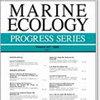鱼类死亡教训和数据需求:对佛罗里达州西南部沿海公民鱼类死亡报告的时空分析
IF 2.1
3区 环境科学与生态学
Q2 ECOLOGY
引用次数: 0
摘要
摘要:鱼类死亡事件威胁着世界各地的水生生物、当地经济和人类健康。然而,由于鱼类死亡事件难以预测且往往持续时间很短,有关鱼类死亡的时空趋势以及鱼类尸体的物种组成和丰度的信息仍然很有限。在佛罗里达州西南部沿海地区,鱼类死亡事件频繁发生,但我们所知道的大部分信息都是基于市民向佛罗里达州鱼类死亡热线的报告和渔民的经验。本研究旨在通过分析开放访问的佛罗里达杀鱼热线报告、与赤潮相关的海牛死亡案例以及环境监测数据,确定 2010 年至 2022 年佛罗里达西南部沿海的杀鱼事件时空模式。此外,还将杀鱼热线报告中确定的鱼类类别与作者于 2021 年 7 月在佛罗里达坦帕湾杀鱼事件中进行的尸体计数调查进行了比较。2010-2022 年数据集分析结果表明,杀鱼热线报告有助于确定鱼类死亡的地点和持续时间。在过去 12 年中,报告数量也有所增加,尤其是在较热的夏季。然而,杀鱼热线报告在空间上存在偏差,并且没有提供尸体计数结果。此外,杀鱼热线报告主要包括休闲鱼类,而计数调查则显示了针鱼(Lagodon rhomboides)和底栖鱼类的数量。这些发现突出表明,有必要提供资源,使公民能够准确识别和清点尸体。本文章由计算机程序翻译,如有差异,请以英文原文为准。
Fish kill lessons and data needs: a spatiotemporal analysis of citizen fish kill reports in coastal SW Florida
ABSTRACT: Fish kill events threaten aquatic life, local economies, and human health worldwide. However, due to their unpredictable and often short-lived nature, information about fish kill spatiotemporal trends, as well as the species composition and abundance of carcasses, remains limited. In coastal SW Florida, fish kill events are frequent, but much of what we know is based on citizen reports to the Florida Fish Kill Hotline and fisher experiences. This study aimed to identify spatiotemporal patterns of fish kill events in coastal SW Florida from 2010 to 2022 by analyzing open access Florida Fish Kill Hotline reports, red tide-related manatee mortality cases, and environmental monitoring data. Additionally, fish categories identified in Fish Kill Hotline reports were compared to carcass enumeration surveys conducted by the authors during a fish kill event in Tampa Bay, Florida, in July 2021. The results of the 2010-2022 dataset analysis indicate that Fish Kill Hotline reports were useful in identifying the location and duration of fish kills. The number of reports has also increased over the past 12 yr, particularly during the warmer summer months. However, Fish Kill Hotline reports were spatially biased and did not provide carcass enumeration results. Additionally, Fish Kill Hotline reports mainly included recreational fish groups, whereas enumeration surveys indicated the abundance of pinfish Lagodon rhomboides and demersal fish. These findings highlight the need for resources that enable citizens to accurately identify and enumerate carcasses accurately.
求助全文
通过发布文献求助,成功后即可免费获取论文全文。
去求助
来源期刊

Marine Ecology Progress Series
环境科学-海洋学
CiteScore
5.30
自引率
8.00%
发文量
238
审稿时长
3 months
期刊介绍:
The leading journal in its field, MEPS covers all aspects of marine ecology, fundamental and applied. Topics covered include microbiology, botany, zoology, ecosystem research, biological oceanography, ecological aspects of fisheries and aquaculture, pollution, environmental protection, conservation, and resource management.
 求助内容:
求助内容: 应助结果提醒方式:
应助结果提醒方式:


